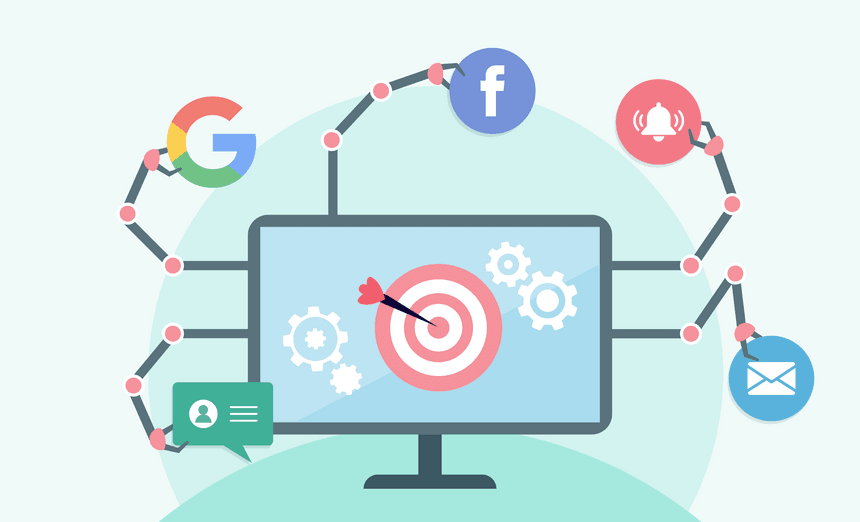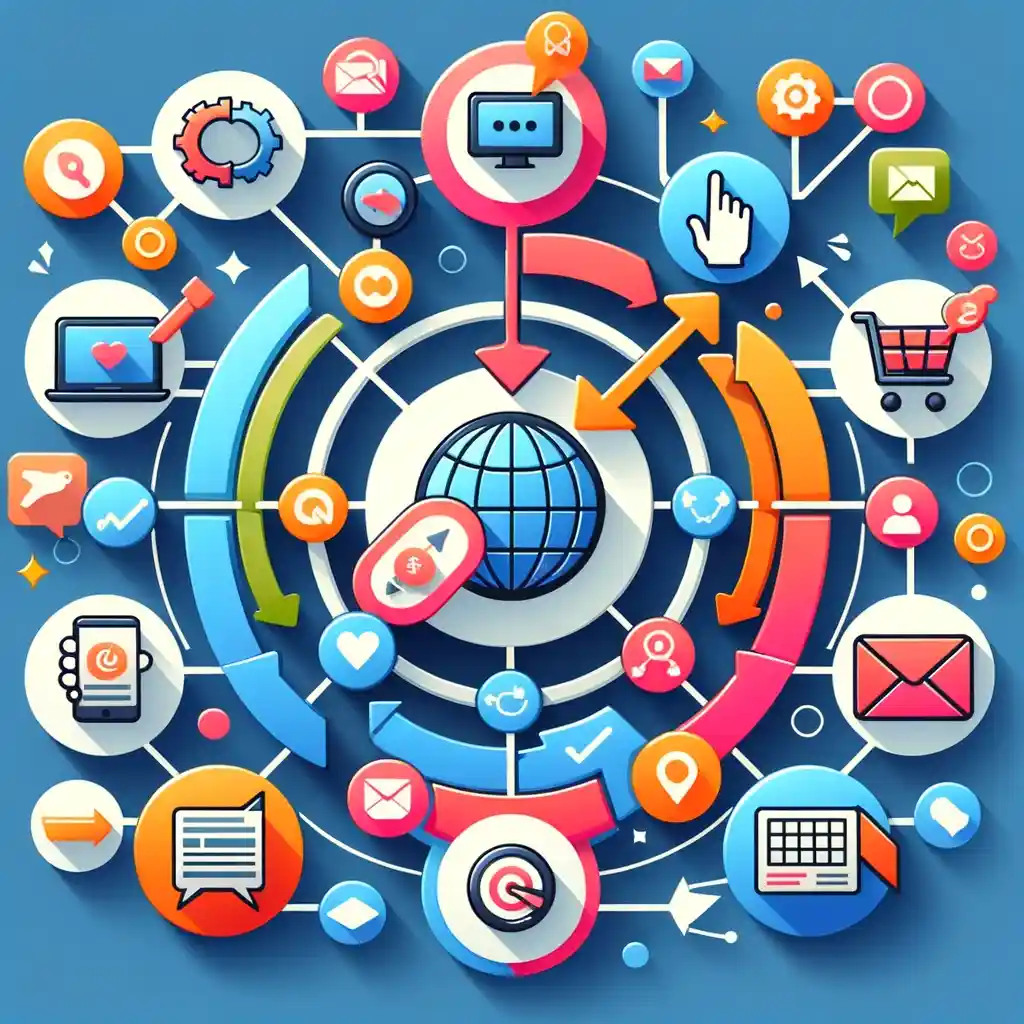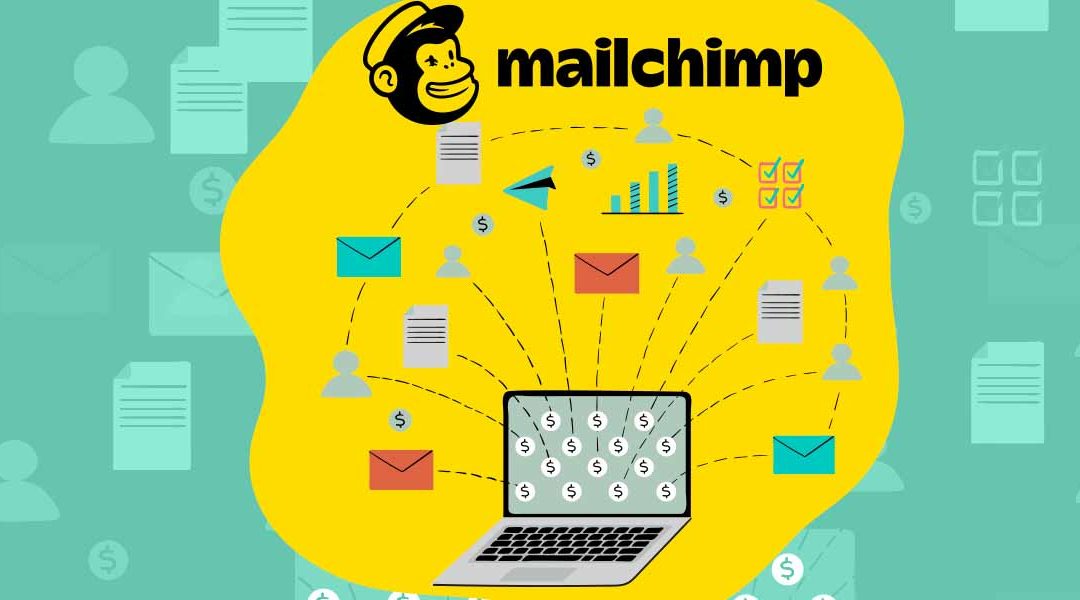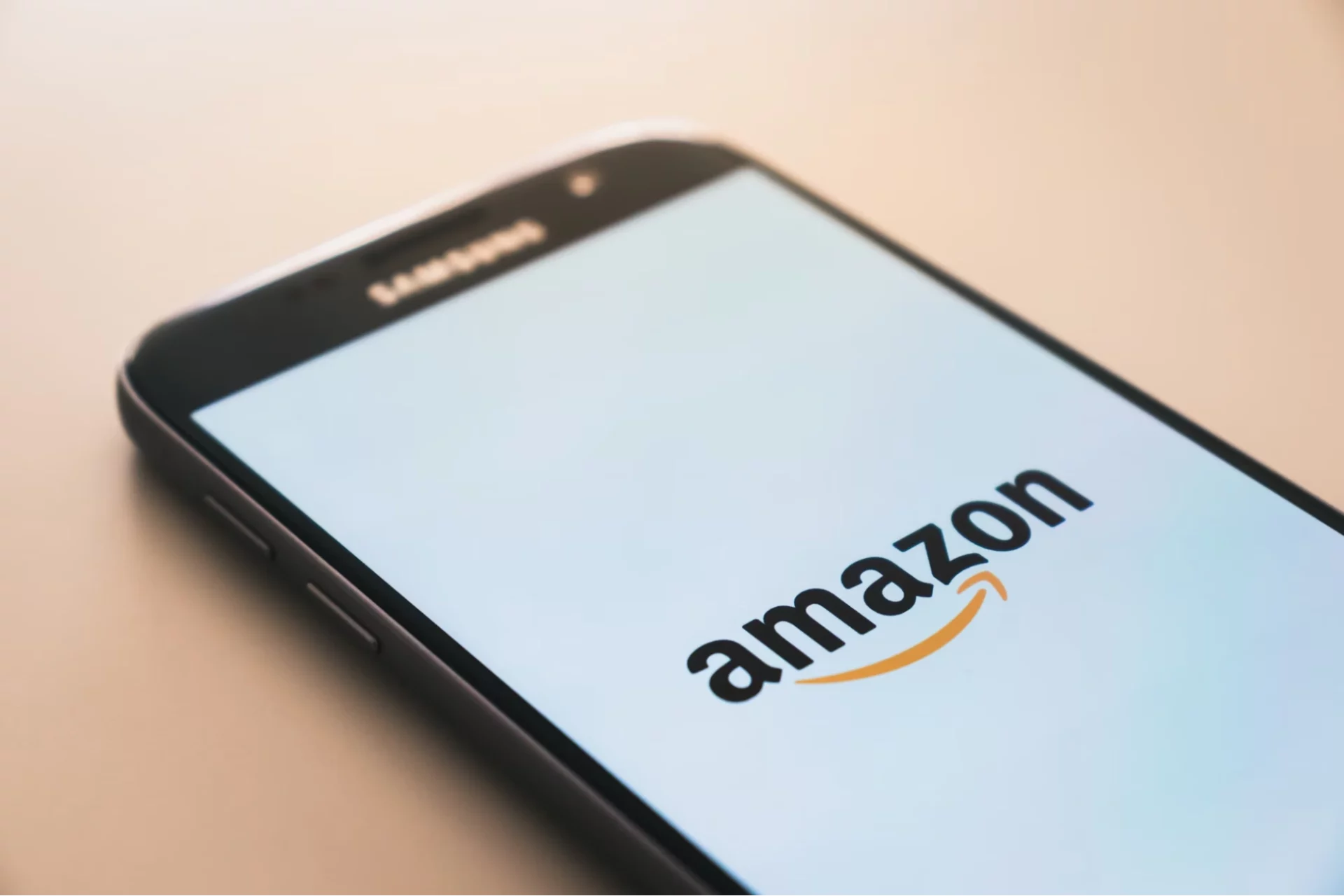Your Complete Guide to Marketing Automation
Table of Content
Imagine managing your marketing across email, social media, websites, and text messages – all automatically! That’s the power of marketing automation.
No wonder a recent State of Marketing report found a significant shift towards workflow automation, with 70% of those businesses seeing it as a lasting change.
Marketing automation isn’t just for marketing teams! Sales teams leverage these platforms to automate repetitive tasks, freeing them to focus on closing deals. This not only boosts efficiency but also minimizes human error.
Generating leads, nurturing them, and measuring success is also a breeze with marketing automation. It’s especially valuable during economic uncertainty, as it maximizes return on investment (ROI) on your campaigns. And the best part? As your business grows, your marketing automation system scales right along with you.

In short, marketing automation saves you time, money, and effort while boosting your marketing and sales effectiveness.
What You Can Automate in Marketing Today?
Tired of hitting “send” on endless emails? Marketing automation is your secret weapon. These tools streamline repetitive tasks, freeing you to focus on strategic initiatives that drive growth.
Imagine this:
- Your lead qualification process is automated, freeing you to focus on nurturing high-potential customers.
- Designing engaging content and scheduling automated deployment across channels saves your valuable time and resources.
- Reaching the right audience with the right message at the right time maximizes the impact of your marketing efforts.
Stop micromanaging every detail. Focus on what matters:
- Effortless Lead Nurturing: Auto-qualify leads, freeing you to nurture high-potential customers. Sales can close deals faster, not chase unqualified leads.
- Automated Campaign Powerhouse: Design content once, and schedule multi-channel deployment. Save time for creative ideas & campaign optimization.
- Smart Targeting, Precision Impact: AI targets the right audience with the right message, maximizing campaign impact and boosting conversion rates.
- Data-Driven Decisions: Analyze results, refine your strategy, and optimize marketing spend for maximum ROI.
- Revenue & Growth on Autopilot: Automate tasks, free up your team, and scale marketing efforts for business growth.
Real-world example: R.M.Williams
The iconic Australian brand, R.M. Williams, harnessed the power of marketing automation to deliver personalized customer experiences.
The results speak for themselves:
- 5% increase in email revenue
- 176% increase in average order value from targeted emails
- 65% increase in email deliverability
- 35% reduction in unsubscribe rates
How Top Tools Streamline Your Marketing?
Every interaction – emails, website visits, app usage, social media – generates valuable customer data. A connected CRM system gathers this data, creating a complete picture (360-degree view) of each customer.
This empowers your marketing automation software to:
- Effortlessly Segment and Target: Quickly identify the right audience for your campaigns, at scale.
- Personalized Messaging on Autopilot: Automatically tailor messages to individual customer profiles, ensuring relevance.
- Seamless Customer Journeys: Deliver personalized experiences across email, mobile, social media, and your website with just a few clicks.
- Nurturing Leads, Converting Customers: Automate lead nurturing at every stage of the customer journey, driving efficiency and conversions.

By connecting your CRM and marketing automation, you gain a deeper understanding of your customers and streamline your marketing efforts, leading to more meaningful customer interactions and increased sales.
The ROI of Marketing Automation
Nurture and Develop B2B Relationships with Automation
Building trust and awareness is crucial in B2B sales. Marketing automation empowers you to:
- Streamline Complex Procurement Processes: Automate multi-stage workflows, guiding B2B buyers seamlessly through your procurement journey.
- Targeted Communication at Every Stage: Deliver relevant information and resources to the right decision-makers at the right time, fostering trust throughout the nurture cycle.
- Focus on Relationships, Not Repetitive Tasks: Free your team from repetitive tasks like email follow-ups. Focus on building strong relationships with high-value B2B prospects.
- Never Miss an Opportunity: Set up automated triggers based on specific points in the customer journey, ensuring no B2B lead falls through the cracks.
- Dynamic Content Customization: Tailor content dynamically for each B2B prospect based on their interactions and profile, enhancing personalization and impact.
- Predictive Analytics for Better Targeting: Use predictive analytics to forecast buying behaviors and pinpoint promising prospects, optimizing marketing strategies and resource allocation.
Boost Conversions and ROI with B2C Marketing Automation
Streamline your sales funnel and identify high-potential leads faster with marketing automation. Here’s how:
- Automated Lead Nurturing: Deliver targeted content automatically, building trust and engagement with your B2C audience.
- Smart Triggers & Personalization: Trigger automated notifications based on lead behavior, allowing you to reach out with personalized messages at the perfect moment.
- Qualified Leads, Warmer Handoffs: Automatically route high-quality leads to your sales team, ensuring they focus on the most promising opportunities.
- Data-Driven Optimization: Gain valuable insights through analytics and real-time reporting. Measure your marketing ROI accurately and optimize campaigns for maximum effectiveness.
- Predictive Lead Scoring: Use AI to prioritize leads with the highest conversion potential, optimizing your team’s focus.
- Multichannel Campaign Management: Automate and synchronize marketing across all channels for a unified and effective outreach.

By leveraging marketing automation for both B2C and B2B strategies, you can nurture leads, personalize communication, and ultimately drive higher conversions and a stronger return on investment.
Selecting the Right Marketing Automation Tool
Don’t let new technology become a headache! Here’s a systematic approach to finding the perfect marketing automation fit for your business:
- Tech Ecosystem Check
- Does your marketing automation need to integrate seamlessly with existing software?
- Will it replace an older system? Analyze the impact on existing processes and plan for a smooth transition.
- Data Security and Compliance
- Ensure the platform adheres to global data protection regulations like GDPR. How does it handle customer data privacy?
- Ensure the platform adheres to global data protection regulations like GDPR. How does it handle customer data privacy?
- Customization and Integration Capabilities
- Can the system be customized to fit unique marketing strategies? Assess its ability to integrate with new tools or platforms you might adopt later.
- Can the system be customized to fit unique marketing strategies? Assess its ability to integrate with new tools or platforms you might adopt later.
- Business Needs Assessment
- B2C retail or B2B wholesale? Choose a platform with features catering to your specific business model.
- Does it offer the necessary e-commerce functionalities?
- Understanding Your Customers
- How do your customers interact with your brand? Consider browsing habits, shopping preferences, and communication channels.
- Does the platform track social media campaigns and analyze brand sentiment?
- Usability and Support
- Will your team feel comfortable using the software? How much training is required?
- Does the provider offer implementation partners and ongoing customer support?
- Scalability for Growth
- Can the platform scale alongside your business expansion?
- Will you need additional features or software in the future?
- Cost Considerations
- Understand all associated costs. Do they fluctuate with user numbers or database size?
- Understand all associated costs. Do they fluctuate with user numbers or database size?
By following this checklist, you’ll choose a marketing automation tool that empowers your team, simplifies workflows, and takes your customer journeys to the next level.
Implementing Marketing Automation Software
Involve your team: They’re the experts in your workflows and potential roadblocks. Getting their buy-in is key to long-term success.
- Craft an Implementation Plan
- Collaborate with IT: Work with your IT department and any implementation partner to define technical needs. This might include:
- User Permissions
- Data Structure
- Landing page and form integrations
- Staff training requirements
- IT plays a vital role: They can ensure:
- Best email deliverability protocols
- Secure subscriber tracking
- Collaborate with IT: Work with your IT department and any implementation partner to define technical needs. This might include:
- Data and Integration
- Import and Integrate with CRM: Ensure your data imports smoothly. Test a small sample before transferring everything.
- 360-Degree Customer View: Integrate your marketing automation with your CRM to gain a complete picture of your customers and personalize their experience.
- Organize for Efficiency
- Streamline Resources: Create a user-friendly system for accessing marketing resources and assets, ensuring consistency across campaigns.
- Streamline Resources: Create a user-friendly system for accessing marketing resources and assets, ensuring consistency across campaigns.
- Empower Your Team
- Invest in Training: Provide your team with the resources and training they need to use the new tools effectively. Their skills will directly impact the success of your automated marketing efforts.
- Invest in Training: Provide your team with the resources and training they need to use the new tools effectively. Their skills will directly impact the success of your automated marketing efforts.

Proven Practices for Marketing Automation
Marketing automation can be a game-changer, but a winning strategy is key. Here’s your cheat sheet:
- Segment Smartly: Analyze customer data to personalize experiences. Group customers based on interests and behavior.
- Content is King: Build a library of engaging content for all customer journey stages (new leads, nurtured leads, loyal customers).
- Phased Launch: Don’t go all-in at once. Start small, test, refine, and then expand for optimal results.
- Goals & ROI: Set clear goals (quantify them!) and show how automation boosts business (e.g., lead gen, sales).
- Team Up: Involve other departments (sales, customer service) from the start. Collaboration is key.
- Map It Out: Visualize your workflow with flowcharts for clear communication across your organization.
- Analyze & Adapt: Track results, identify what works, and use automation’s time-savings to continuously improve your strategy.
- Feedback Loop: Establish a system for gathering and analyzing customer feedback. Use this insight to refine your automation tactics and improve user satisfaction.
- Technology Integration: Ensure your marketing automation tools integrate smoothly with your CRM and other technology stacks to enhance data accuracy and workflow efficiency.
- Training and Support: Invest in regular training sessions for your team to keep up with the latest marketing automation features and best practices, ensuring they fully leverage the technology.
Bonus Tip: Prioritize data security and comply with privacy regulations (GDPR, CCPA) to keep your customer data safe.
Automate Your B2B Marketing for Success
B2B sales involve a focused group and a longer buying cycle. Marketing automation thrives in this environment:
- Smaller Target Market: Tailored messaging resonates more with a defined audience.
- Nurturing is Key: Long buying cycles require extended lead nurturing with educational content like videos and guides.
- Automated Workflows: Trigger follow-ups at key points in the customer journey, keeping prospects engaged.
- Accurate Lead Qualification: Marketing automation helps identify high-potential leads for your sales team.

By fostering long-term relationships and delivering relevant content, marketing automation empowers B2B success.
B2C Marketing Automation Made Easy
B2C marketing is all about a smooth path to purchase. Here’s how automation helps:
- Shorter Sales Cycle: Get customers from awareness to checkout quickly with a simple, guided buying experience.
- Brand Familiarity & Impulse Buys: Nurture leads with automated email flows, building brand recognition and encouraging impulsive purchases.
- Minimal Sales Involvement: Automation warms up leads, making the sales process smoother and potentially sales-free.
- Personalized Customer Journeys: Trigger automated responses based on customer behavior and preferences, keeping messaging relevant.
- The Competitive Edge: Personalized experiences are key to standing out. B2C automation tools deliver targeted messaging for a winning customer experience.
By automating tasks and personalizing the journey, B2C marketing automation empowers you to convert leads into customers with minimal sales intervention.
Is Marketing Automation Easy for Your Business?
Stop juggling tools! Marketing automation platforms make managing your digital strategy a breeze.
Here’s what you get:
- Effortless Campaign Creation: Launch campaigns with a single click and manage everything in one user-friendly interface.
- Drag-and-Drop Simplicity: Build campaigns visually using familiar drag-and-drop functionality.
- All-in-One Management: Schedule emails, create campaigns, and manage subscribers – all from a single dashboard.
- A/B Test Like a Pro: Run automated A/B tests on emails to find high-performing messages that drive engagement.
- Measure & Optimize: Track everything from click-through rates to conversions. Analyze results and refine your strategy on the fly, from anywhere.
- Unify Your Customer View: Go beyond CRM data. Integrate web analytics and e-commerce insights for a complete customer picture.
Marketing automation empowers you to simplify tasks, optimize campaigns, and gain a deeper understanding of your customers.
Connecting your Customers, Connecting your Business
Leverage marketing automation with tools like Robylon AI to trigger personalized messages based on a central hub of customer data. This ensures a consistent brand experience across all touchpoints, whether it’s marketing, sales, or customer service. Imagine one seamless journey for your customers, powered by automation!
FAQs
1. How does marketing automation differ from CRM?
- While CRM systems focus on sales activities, marketing automation streamlines and automates marketing tasks like email campaigns and lead nurturing to enable a more efficient lead-to-sale conversion process.
2. What metrics should I track to evaluate the effectiveness of marketing automation?
- Key metrics include conversion rates, click-through rates, email open rates, lead generation costs, and ROI of marketing campaigns.
3. Can marketing automation integrate with social media platforms?
- Yes, many marketing automation tools offer integration with social media platforms to manage and analyze interactions, schedule posts, and track engagement directly from the automation system.
4. How can marketing automation impact lead generation and nurturing?
- Marketing automation allows for the automated segmentation and scoring of leads, personalized content delivery based on user behavior, and timely follow-ups, which enhance lead nurturing and improve the quality of leads passed to sales.






